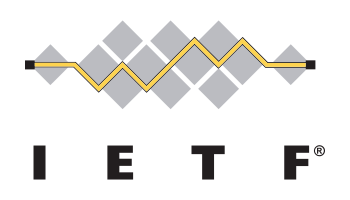March 5, 2015 – Ottawa-Gatineau – The Canadian Radio-television and Telecommunications Commission’s (CRTC’s) Chief Compliance and Enforcement Officer today issued a Notice of Violation to Compu-Finder, which includes a penalty of $1.1 million, for breaking Canada’s anti-spam law. Compu-Finder has 30 days to submit written representations to the CRTC or pay the penalty. It also has the option of requesting an undertaking with the CRTC on this matter.
Further to an investigation, the Chief Compliance and Enforcement Officer finds that Compu-Finder sent commercial electronic messages without the recipient’s consent as well as emails in which the unsubscribe mechanisms did not function properly. The emails sent by Compu-Finder promoted various training courses to businesses, often related to topics such as management, social media and professional development. The four alleged violations occurred between July 2, 2014 and September 16, 2014. Furthermore, an analysis of the complaints made to the Spam Reporting Centre of this industry sector shows that Compu-Finder accounts for 26% of all complaints submitted.
The CRTC is assessing complaints submitted to the Spam Reporting Centre that are under its legislative mandate and a number of investigations are currently underway. The CRTC is working with its partners, both within Canada and internationally, to protect Canadians from online threats and contribute to a more secure online environment.
The CRTC can discuss corrective actions with individuals, firms or organizations, which may lead to an undertaking that includes an amount to be paid and other corrective measures. As part of its powers, the CRTC can also issue warning letters, preservation demands, notices to produce, restraining orders and notices of violation.
Canadians are encouraged to report spam to the Spam Reporting Centre. The information sent to the Centre is used by the CRTC, the Competition Bureau, and the Office of the Privacy Commissioner to enforce Canada’s anti-spam law.
Quick Facts
- The CRTC’s Chief Compliance Officer has issued Compu-Finder a Notice of Violation, which includes a penalty of $1.1 million, for four violations of Canada’s anti-spam law.
- Compu-Finder had sent commercial emails without consent, as well as messages in which the unsubscribe mechanisms did not function properly.
- To help Canadian businesses comply with the law, the CRTC has provided numerous information sessions across the country and made guidance materials available on its website.
- The CRTC is working with its partners, both within Canada and internationally, to protect Canadians from online threats and contribute to a more secure online environment.
- Canada’s anti-spam law protects Canadians while ensuring that businesses can continue to compete in the global marketplace.
- Canada’s anti-spam legislation was adopted by Parliament in December 2010 and came into force on July 1, 2014.
- Penalty amounts are calculated using the factors outlined in section 20 of Canada’s anti-spam legislation.
Quote
“Prior to the coming into force of the anti-spam law, the CRTC conducted numerous outreach initiatives to increase the awareness of businesses on the new requirements. Creating a secure online environment for Canadians is also the responsibility of industry. Despite the CRTC’s efforts, Compu-Finder flagrantly violated the basic principles of the law by continuing to send unsolicited commercial electronic messages after the law came into force to email addresses it found by scouring websites. Complaints submitted to the Spam Reporting Centre clearly indicate that consumers didn’t find Compu-Finder’s offerings relevant to them. By issuing this Notice of Violation, my goal is to encourage a change of behaviour on the part of Compu-Finder such that it adapts its business practices to the modern reality of electronic commerce and the requirements of the anti-spam law. We take violations to the law very seriously and expect businesses to be in compliance.” – Manon Bombardier, Chief Compliance and Enforcement Officer, Canadian Radio-television and Telecommunications Commission

















